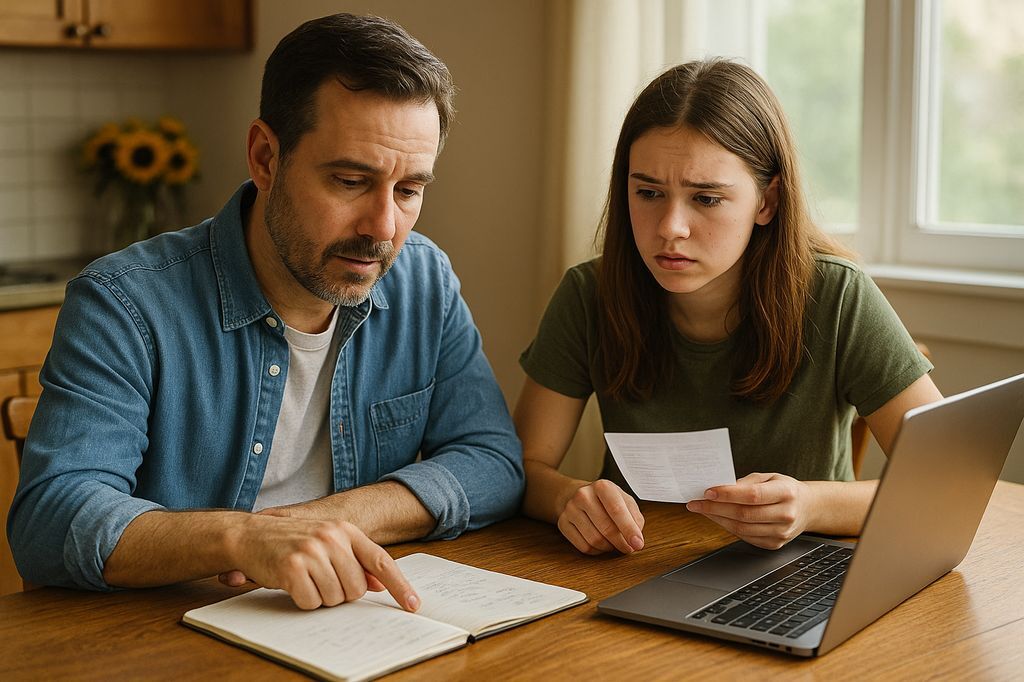Remember how invincible we felt when we graduated? The ink on our diplomas was barely dry before we moved out, stumbled through our first budget and learned that car insurance isn’t optional. Fast‑forward a generation and teenagers are heading into the world feeling more like deer in headlights. A new national survey found that nearly one in three recent high‑school grads think their education didn’t prepare them for life’s practical, financial and emotional challenges. That’s a sobering reality for those of us who thought algebra would be the hardest thing our kids would ever face.
The survey, commissioned by K12, polled 300 graduates and 200 parents about readiness for adulthood. Forty‑four per cent of young people said their biggest fear is not becoming financially independent, 41 per cent worry about making the wrong choices and falling behind, and almost a third said they’re anxious about mental health. When asked what they wish they’d learned in school, their answers weren’t about balancing chemical equations. They wanted to know how to file taxes (62 per cent) and how credit scores and loans work (60 per cent), how to budget and manage money (49 per cent) and even the basics of health insurance (50 per cent). Parents echoed those concerns: 67 per cent said schools should teach financial literacy, with career planning, insurance, taxes and time management not far behind.
If you grew up like I did, you might be rolling your eyes. My dad handed me a W‑4 form and a stack of bills at 18 and said, “Good luck.” We learned by doing because we had to. But we’ve also spent the last decade shuttling our kids between extra‑curricular activities, overprotecting them from failure and occasionally throwing money at problems to keep the peace. It’s no wonder many teens feel entitled and ill‑equipped when the training wheels finally come off. Teaching them to take out the trash and clean their own room isn’t about torment—it’s about resilience. Because if your son can’t sort laundry, he’s definitely not ready to read an insurance policy.
There’s another factor we can’t ignore: screens. The American Psychological Association notes that U.S. teens average 4.8 hours a day on social‑media apps. Among the heaviest users, 41 per cent rate their mental health as poor or very poor. Teens who use social media for five hours or more are more likely to report suicidal thoughts and body image issues, and 60 per cent of high‑frequency users with weak parental relationships have poor mental health. The good news? Strong parental monitoring dramatically reduces these risks. In other words, connection and boundaries are medicine.
Egypt is taking that medicine seriously. In January, the Ministry of Health convened a national committee to address adolescent mental health and addiction to online games. Officials warned that social‑media and gaming addiction threatens the well‑being of a “significant segment” of young people and rolled out services for early detection, prevention and treatment through schools and a national mental‑health platform. Menan Abdel‑Maksoud of the General Secretariat of Mental Health even called addiction a national security issue, stressing that treatment must include prevention, intervention and rehabilitation. When a government frames kids’ screen habits as a matter of national safety, maybe it’s time we admit our home Wi‑Fi router isn’t just a convenience but a responsibility.
So what can we do besides wring our hands? Start by bringing “adulting” lessons into the kitchen table. Teach your teenager to read a bank statement and understand how credit works. Let them track the grocery budget or calculate the tip at a restaurant. Show them how compound interest can make (or break) a savings goal. Have them file a simple tax return alongside you, even if they only earned allowance money. At the same time, model healthy screen boundaries. Keep phones out of bedrooms at night, plan family activities that don’t involve devices and talk openly about what they see online.
We also need to break our own patterns. If we want teens to value money, chores and consent, we have to stop bailing them out at the first sign of discomfort. Let them feel the frustration of missing out because they didn’t finish their responsibilities. Encourage them to seek help for mental‑health struggles and normalize therapy the way we normalize braces. Show them it’s okay to turn down peer pressure and say “no” without guilt. Ultimately, we’re raising future adults, not houseplants.
Adult life will never be easy, but it also doesn’t have to feel like free‑fall. Our kids are telling us loud and clear that they need both practical skills and emotional support. Schools can teach part of it; families must teach the rest. By coupling financial literacy with responsible technology use and open conversations about mental health, we can equip the next generation to step into adulthood with more confidence than confusion. And who knows—maybe we’ll learn a thing or two along the way.







Leave a Reply
You must be logged in to post a comment.